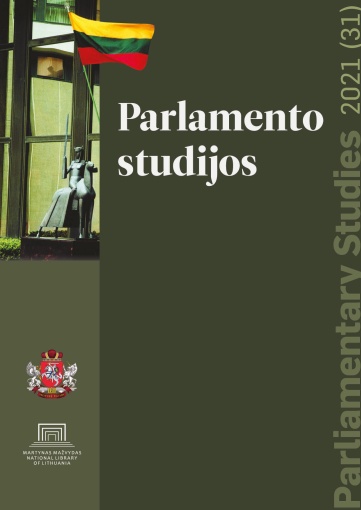Propensity to Political Polarization and Echo Chambers of Facebook Pages of Lithuanian Political Parties and Independent Political Civic Movements
DOI:
https://doi.org/10.51740/ps.vi31.777Keywords:
social media, Facebook pages, political news, political parties, echo chambers, selective exposure of news, political polarization, LithuaniaAbstract
Despite the growing usage of social media platforms for sharing and using political news both in Lithuania and abroad, researchers overlook the role of these platforms in the development and consumption of political content. The context of social media and its predominant selective content endanger the most vulnerable groups of people without clear political views. The result is growing political polarization and the emergence of echo chambers. On the basis of research studies, the article defines changes in the political news consumption process directly caused by the environment of social media platforms. The reasons and conditions are distinguished under which echo chambers are likely to arise in social media. In order to identify manifestations of this process, an empirical study of Facebook pages of eight Lithuanian political parties and political civic movements was conducted from 1 May to 30 June 2021, the period demonstrating apparent collisions and initiatives of diverse political views. The research exposed the fact that audiences were prone to political polarization and had features of echo chambers. Political civic movements, unlike political parties, were more prone to political polarization and had more pronounced features of echo chambers. These audiences tended to be more supportive of their preconceptions and this inevitably leads to extreme opinions.









 The metadata of the scholarly journals and publications of the Lithuanian National Martynas Mažvydas Library is distributed by
The metadata of the scholarly journals and publications of the Lithuanian National Martynas Mažvydas Library is distributed by 